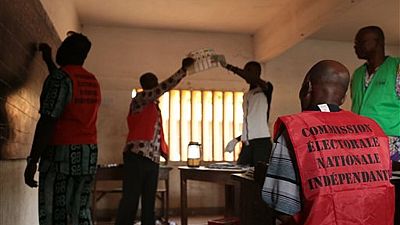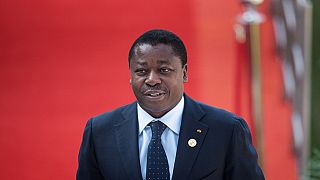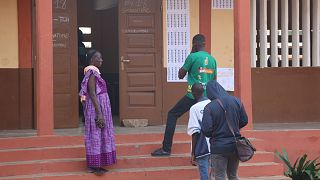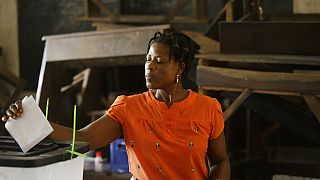Togo
The significance of the February 22 vote is that it will be the first presidential polls after constitutional changes occasioned by anti-government protests which started three years ago.
Togo’s incumbent Faure Gnassingbe will be contesting for the first of two constitutionally mandated five-year terms. Previously, the law allowed a candidate to run for as long as he wanted. That changed with the amendments that followed protests in 2017 and 2018.
But given that they did not have retrospective effect, Faure’s 15 years in office (2005 – 2020) did not count. It leaves him with a possible ten years to finally quit the presidency. If he wins the February 2020 polls, he is eligible to contest again in 2025 for a final term.
The elections body cleared ten candidates but three were kicked out by the Constitutional Court. The president is the frontrunner but will be given his strongest opposition by Jean-Pierre Fabre, who was the leader of the protests that forced reforms especially on term limits for the presidency. Another big name in the race is a former Prime Minister in the person of Professor Agbeyome Kodjo who leads a coalition.
text
The seven candidates are as follows (in no particular order): - Faure Gnassingbe, 54, leader of the Union for the Republic (UNIR)
- Mr Jean-Pierre Fabre, 68, president of National Alliance for Change (ANC)
- Agbeyome Kodjo, 66, Ex Prime Minister leading a coalition, the Patriotic Movement for Democracy and Development (MPDD)
- Tchaboure Gogue, 73, Alliance of Democrats for Integral Development (ADDI)
- Georges William Kuessan, 53, People’s Health Party
- Mr Mohamed Tchassona Traore, 60, Citizen Movement for Democracy and Development (MCDF)
- Komi Wolou, 56, Socialist Pact for Renewal (PSR).
The Gnassingbe dynasty rolls on
The Gnassingbe family has been in charge of Togo since over five decades much the same as the Bongo family in Central Africa’s oil producing nation Gabon.
Faure’s father Eyadema came to power via a coup in 1967 and governed till his death in 2005 following which Faure was inducted contrary to legal processes of power reverting to the speaker of parliament.
Polls were quickly arranged following international pressure securing him his first five-year term under an open-ended presidential system. The 20 vote along with reelections in 2010 and 2015 have been tainted by repression and rigging, according to reports.
Process before during and after voting
The voting system is as pertains across much of the West African region particularly with the French system and its peculiarities.
The Independent National Electoral Commission, CENI, is tasked with regulating the process from the campaigning through to voting, tallying and declaring results before presenting it to the Constitutional Court for validation.
Incidentally, Togo as part of the reforms of last year adopted the 50%+ rule for a winner to emerge failure for which a runoff between the two top candidates will be held in weeks.
Major highlights and pointers include:
- Campaigning starts on Friday, February 6
- Campaigning ends two days before opening of polls, in this case February 20
- Ballots will open in the morning and close at sunset after which counting, tallying begins
- CENI shall announce results
- Results are transmitted to the Constitutional Court for validation
- All contestations are to be lodged with the court for redress
- CENI boss is Chambakou Ayassor
Shaban Abdur Rahman Alfa
Digital journalist
@AlfaAfrican
alfa.shaban@africanews.com











01:21
Cameroon 2025: Maurice Kamto seeks to vie on a different political outlook
01:04
Turkish democracy under pressure: Erdogan's top rival sentenced to two years in prison.
01:00
Pix of the Day: July 16, 2025
01:52
Togo’s security forces cast early votes ahead of high-stakes municipal elections
02:23
Cameroon: Mixed reactions in Yaoundé after Biya announces bid for another term
Go to video
Togo protest crackdown raises fears of worsening political crisis